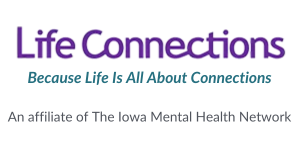Almost 50 percent of marriages in the U.S. end in divorce, so how can we help children cope with living in separate homes? Even the most loving parents may be doing things to cause harm to their children’s feelings as they are occupied with their own feelings regarding divorce. Other parents may put their children in the middle, which can cause anxiety in the child (Sori & Hecker, 2012). Let’s look at the 5 stages of grief the parent AND the child can go through when faced with divorce.
5 Stages of Grieving Divorce:
- Denial-For parents this may look like “they are only saying they want a divorce because they are angry, they will come around.” For kids, this may look like, “my parents never fought, how could they separate?”
- Anger-For parents-this may look like feelings of betrayal from their partner. For kids, this may look like anger due to feeling abandoned by parents.
- Bargaining-For parents-this may look like-”What if I gave them more attention?” For kids, this may look like- “If I behaved better, my parents would still be together.”
- Depression- For parents-this may look like, “I feel guilty for hurting the kids.” For kids- this may look like crying, isolation, sadness, and lack of interest in activities they once enjoyed.
- Acceptance-For parents- this may look like making new friends and socializing more. For kids, this may look like getting adjusted to new routines.
Things parents can do to have positive co-parenting: (Parent’s Guide to Good Divorce by Katherine Ford Sori & Lorna L. Hecker):
- Do not put a child in the middle.
- Do not ask your child to choose a parent
- Do not assign fault to the divorce
- Do not talk negatively about your ex.
- Keep appropriate boundaries with children
- Tell the children that the divorce is not their fault.
- Take care of yourself
- Allow your child to express their feelings
- Allow children to enjoy visits with other parent
- Do not engage in conflict with ex in front of the children
Resources to use to help your child understand:
- “Dinosaurs Divorce” by Laurie Krasny Brown and Marc Brown
- “The Invisible String” by Patrict Karst
- Two Homes: The board game
- Art (drawing): To help express feelings about divorce
- Giving additional positive attention for child to feel supported
- Telling child about divorce with both parents present
- Obtaining addition help: Therapy and BHIS services at Life Connections
These resources can be given to both parents to ensure that both are a united front with parenting. When children have successful co-parents, they are likely less stressed and able to adjust to the changes easier. Divorce can be challenging for both the adults and children, but with resources and willingness to work together, it can be manageable.
Jackie Lambert, LMHC, NCC
Because Life is All About Connections
Life Connections provides in-home Behavioral Health Intervention services, Therapy services, autism (ABA) services and Children’s Mental Health waiver services in our 13 office locations and approved schools across Iowa. Life Connections was founded in March of 2009 with the intent to serve the children and families of Cedar Rapids and surrounding cities.
Life Connections is a highly professional and caring counseling and behavioral health provider. We offer a wide array of services to treat mental health issues including Applied Behavior Analysis Services, Behavioral Health Intervention Services, mental health therapy, school-based therapy programs, and substance use treatment.
For more information, please call 319-409-6922.
Resources:
- National Suicide Prevention Hotline 800-273-8255
- Crisis Text line text to 741741
- The Trevor Project – for LGBTQ+ young adult community 866-488-7386
- Rape, Abuse, and Incest National Network 800-656-4673
Start Your Services
Start Mental & Behavioral Health Services with Life Connections | Because life is all about connections.

